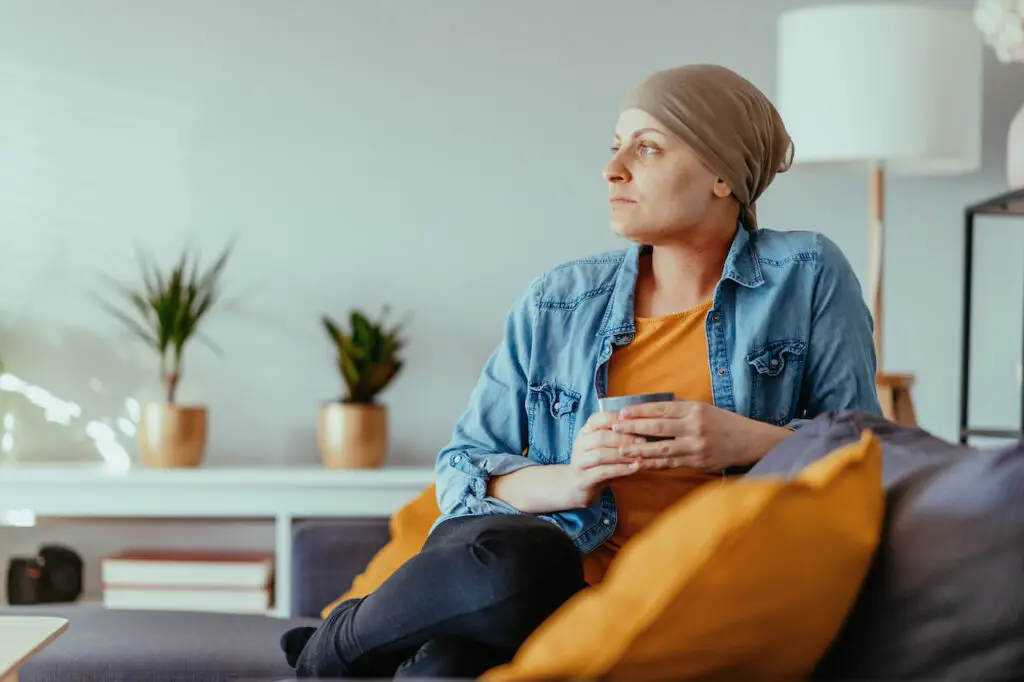How do you deal with medically induced menopause for breast cancer?
A breast cancer diagnosis is a life-altering experience, especially if you are unaware of the lesser-known symptoms and treatment side effects. Up to 80% of breast cancers are hormone receptor-positive, which means the cancer cells grow as a response to hormones including estrogen and progesterone.
Certain treatments and drugs focus on reducing or eliminating these hormones to stop the progression of the cancer cells. Although an effective way to fight hormone receptor-positive breast cancers, these treatments put your body in a medically-induced menopause.
Coping with menopausal symptoms, especially as a younger patient, has its own set of challenges. Here are some strategies to help you manage medical menopause.
1) Find a relaxation technique that works for you
The hormonal shifts that occur within your body during this time can affect you both physically and mentally. It’s completely normal to feel overwhelmed by the changes, but finding effective stress management techniques can help you feel more balanced.
- Meditation: Meditating and focusing on the breath can slow your heart rate down if you are feeling anxious. This practice also helps you focus on the present and can improve your emotional well-being.
- Journaling: Writing down your thoughts and feelings can be a therapeutic way to process your experience and reduce stress. If you’re new to journaling, try a journal, like the Write Your Own Autobiography Guided Journal that contains insightful prompts to help you reflect on your experiences.
- Creative hobby: Finding a hobby that you enjoy can serve as a creative outlet for your stress and give you a sense of achievement.
2) Exercise and eat a balanced diet
A healthy lifestyle can make a big difference. Eating whole grains, fresh fruit, vegetables, healthy fats, and quality protein can help you feel better overall and movement can reduce your stress levels while keeping your body strong.
If you don’t enjoy going to a traditional gym or prefer at-home workouts, you can try a streaming fitness platform like Daily Burn to explore a wide range of different exercises while joining a supportive community of diverse members.
3) Prioritize rest
It’s unfortunately common for hot flashes to disrupt your sleep, but regular exercise can help improve sleep. Keeping a regular sleep schedule and establishing a bedtime routine can also help with your sleep quality. You can also try using a cooling blanket to combat the hot flashes at night and wear breathable pajamas to optimize your sleep.
4) Seek professional help
A therapist can provide valuable support as you navigate the emotional challenges of both cancer treatment and medical menopause. You can also consider support groups, either in-person or online, to connect with others going through similar experiences.
5) Have open communication with your care team
Open discussions on any concerns you have about fertility, side effects, and treatments with your healthcare team are crucial. Your doctor can provide guidance on managing symptoms and recommend medications that might be suitable for you.
If you’d like to learn more about medical menopause, read our Breast cancer and medical menopause FAQ blog.
_______________________________________________________________
To effectively track and manage your menopause symptoms and connect with a supportive community, download the Outcomes4Me app. This tool allows you to easily track your symptoms, access personalized treatment information, and tap into a network of peers and professionals.
*When you make a purchase from a link on this page, we may receive a small affiliate commission at no cost to you.
Personalized support for real care decisions
Understand your diagnosis, explore clinical trials, and track symptoms--all in one place.
Get started
Compare treatments, prepare for appointments, and track side effects—all in the app
Built for your diagnosis, Outcomes4Me gives you the tools to make confident, informed decisions—right when you need them.
Continue in app






